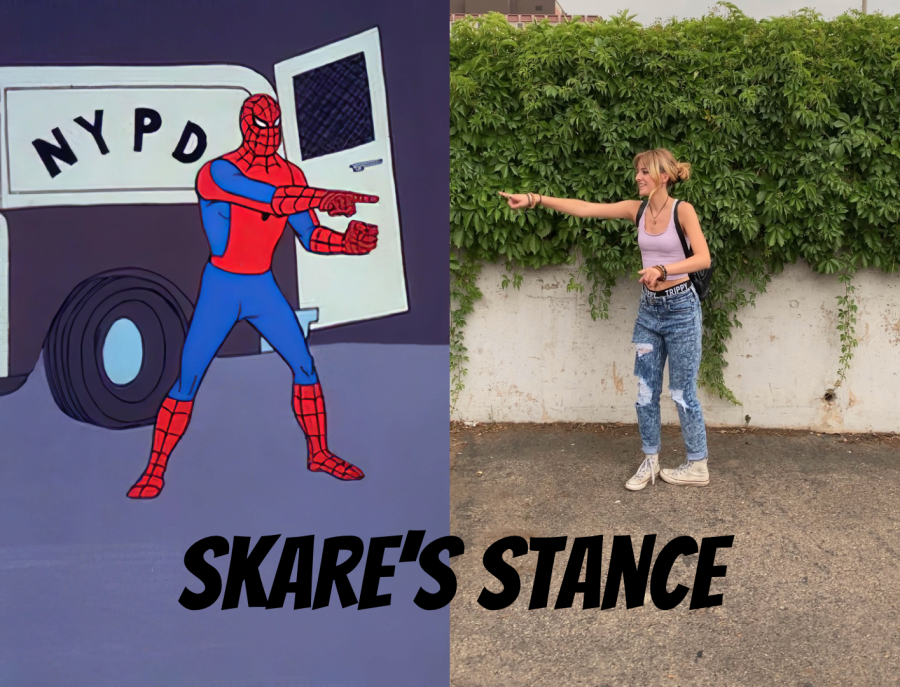Cancel Culture Should Exclude Works of Art
Oct 1, 2021
“Did you hear he’s in jail now?”
“No, he’s not. That was just a Twitter story.”
“Well, I heard he’s been involved in sexual assault allegations.”
“Turn this sh*t music off then!”
We all know the story, some famous artist gets cancelled seemingly overnight. Of course, there should be lots of fact-checking that goes into stories before being released and widely accepted. However, that is not always the case. Many times, stories will get spun through the grapevine before anyone even knows fact from fiction. Thanks to the internet, cancel culture is stronger than ever and spreading fast. But let’s talk about the real issue.
What do we do when the stories are true?
It can be increasingly difficult to find ways to show support for causes and organizations in today’s times. Voices get lost in the sea of others on the internet, and these days, cancel culture is just as likely to attack someone for staying silent as it is for speaking out. It can be troubling to move forward after discovering a favorite artist has done something appalling and unethical. The natural response tends to be a boycott of their work. This is most common in the music industry, but can affect all areas of the fine arts.
For example, famous author J.K. Rowling has recently been “cancelled” for tweets and comments deemed transphobic. One such tweet faced intense backlash: “‘People who menstruate.’ I’m sure there used to be a word for those people. Someone help me out. Wumben? Wimpund? Woomud?” Rowling followed up this tweet with several others stating her stances on biological sex versus gender.
In a flurry, Twitter chains popped up, people cancelled any “Harry Potter” events they had planned, and some even went so far as to get “Harry Potter” related tattoos removed or covered. There were countless responses by both fans of the series and actors involved in the movies.
Daniel Radcliffe, who plays Harry Potter in the movie series, addressed the issue quickly and respectfully. He released a statement via The Trevor Project writing, “Transgender women are women. Any statement to the contrary erases the identity and dignity of transgender people and goes against all advice given by professional health care associations who have far more expertise on this subject matter than either Jo or I.” He went on to address upset fans by assuring, “”If you found anything in these stories that resonated with you and helped you at any time in your life — then that is between you and the book that you read, and it is sacred.”
Radcliffe’s response demonstrates the lesson I think we all need to learn. Cancel culture does not have to extend to the product of the artist themself. The line is fine and, in today’s society, often becomes messy. Of course, there is a difference between appreciating works and giving funding directly to problematic artists by buying their merchandise, albums, etc. For example, there is no need to stop listening to an album you enjoy if the musical artist has reason to be cancelled, but that doesn’t mean you should go out and buy their CDs. Cancel culture has become highly objective. I cannot even offer a statistic of how many artists were “cancelled” in the past year.
According to CNN, 2020 was a “banner year for cancel culture” and after some intensive research, almost every article concerning 2020 featured a different list of cancelled artists. Of course there were a few repeat offenders, but each article circulating brought different offenses to the surface.
It’s important to keep in mind the separation of the artist from their works. In fact, I will go so far as to say that the art itself, once released, loses its affiliation with the artist. In a sense, their works become everyone else’s. The problem with cancel culture is the continuing idea that a work of art, whether music or a book, belongs to the artist- that it is theirs. But once they have published their work, once one other person has appreciated it, taken it to heart, it is no longer the artist’s. Art transcends the physical boundaries of possession.
Art belongs to the viewer, the lover and the appreciator. That is where the issue comes into play. Too many people fail to recognize the control they have in situations involving cancel culture. Yes, undoubtedly, it is important to educate oneself and stand for what they believe is morally and ethically right. By no means am I saying someone should ignore wrongdoings of an artist just because they used to be a fan. Art that connects to the human spirit is divine, and that connection can never be cancelled.





